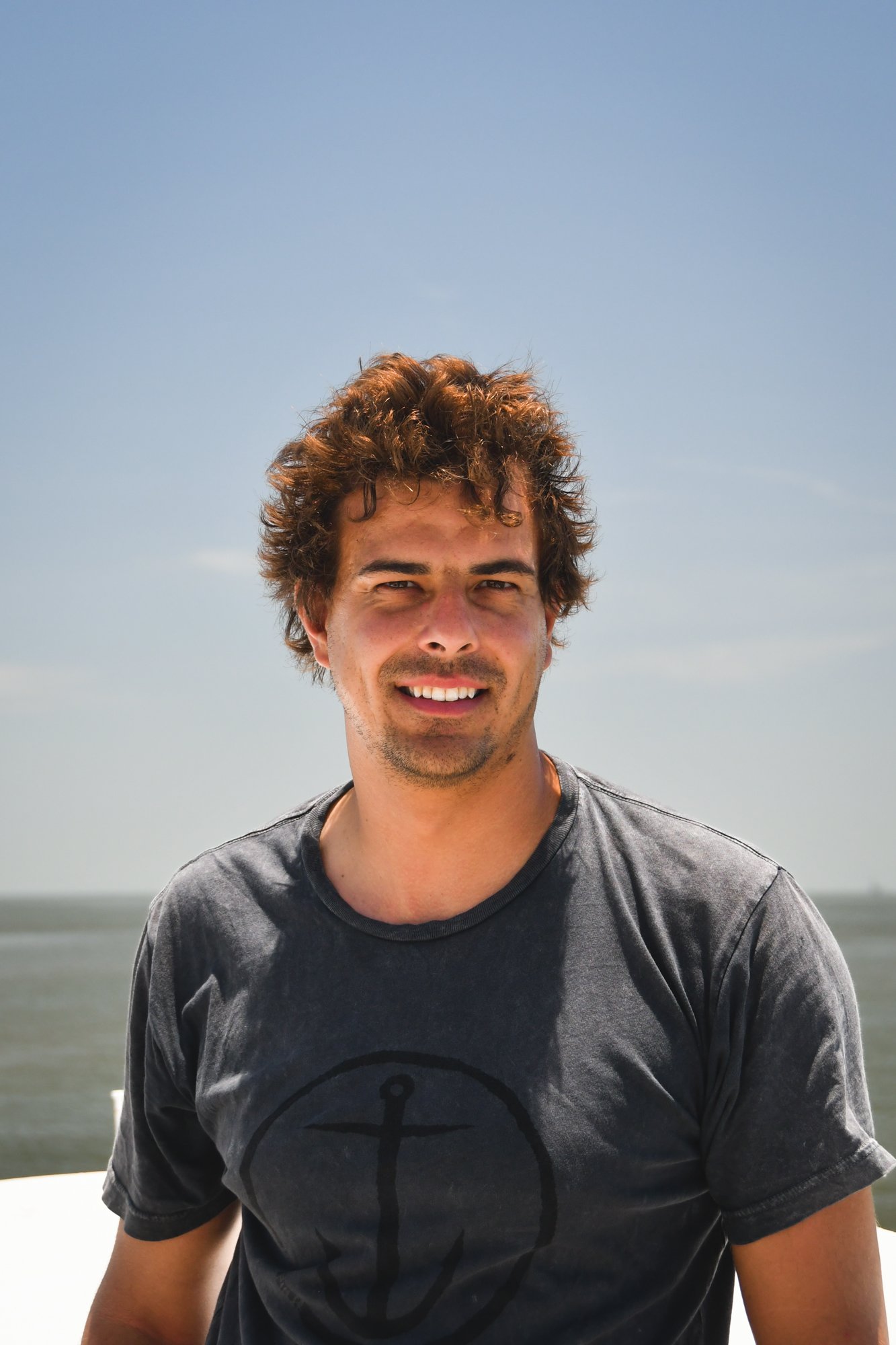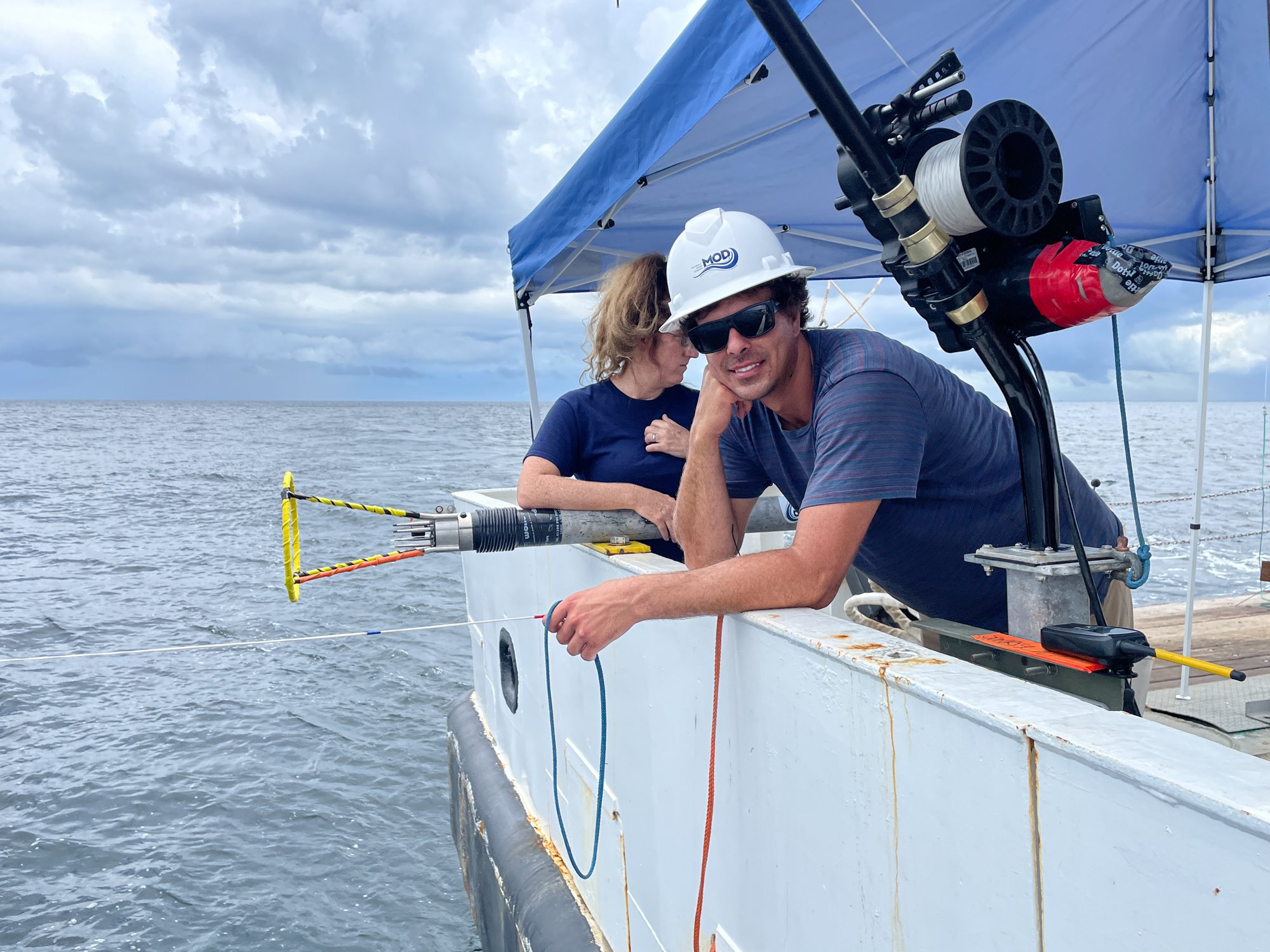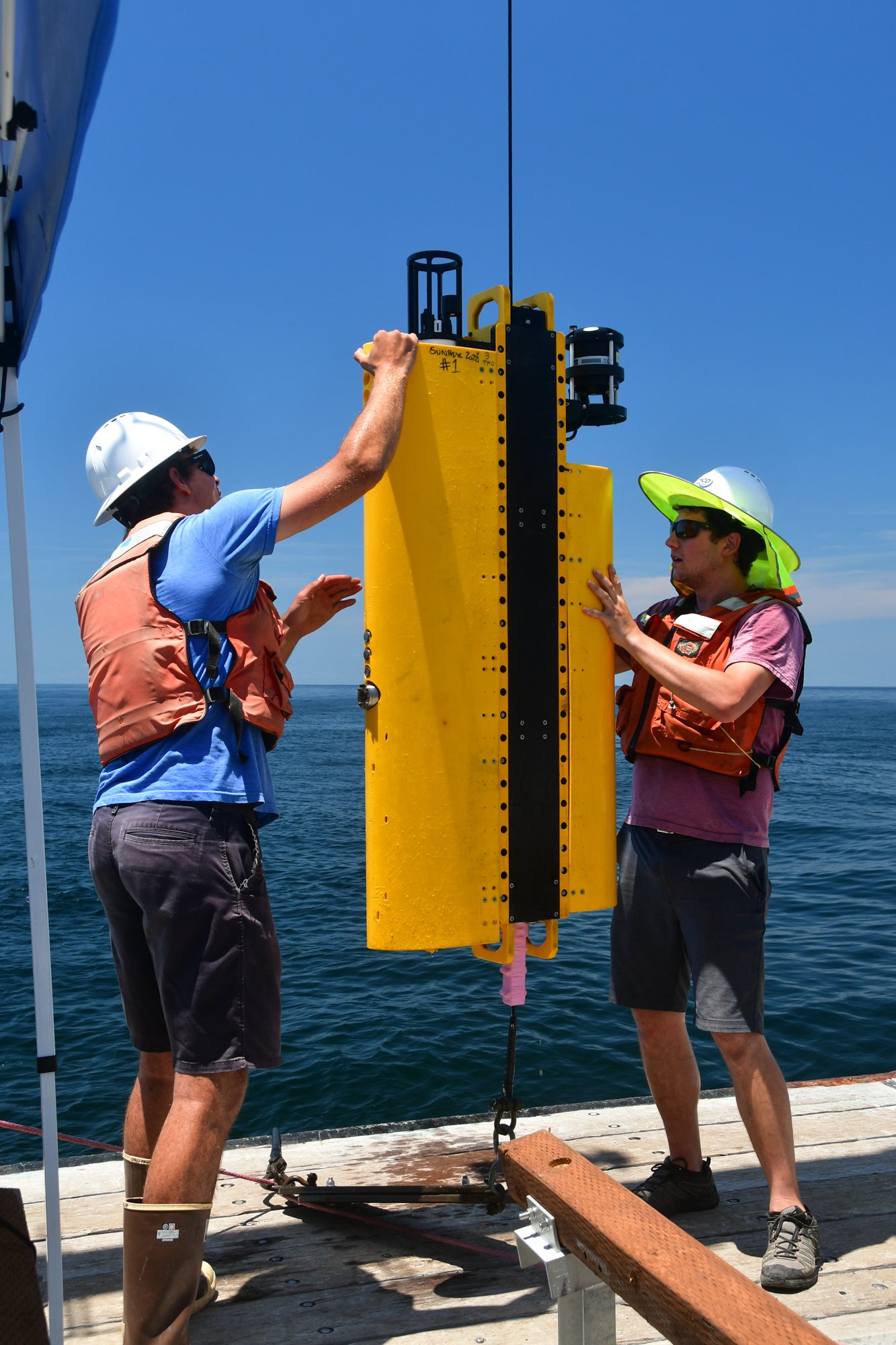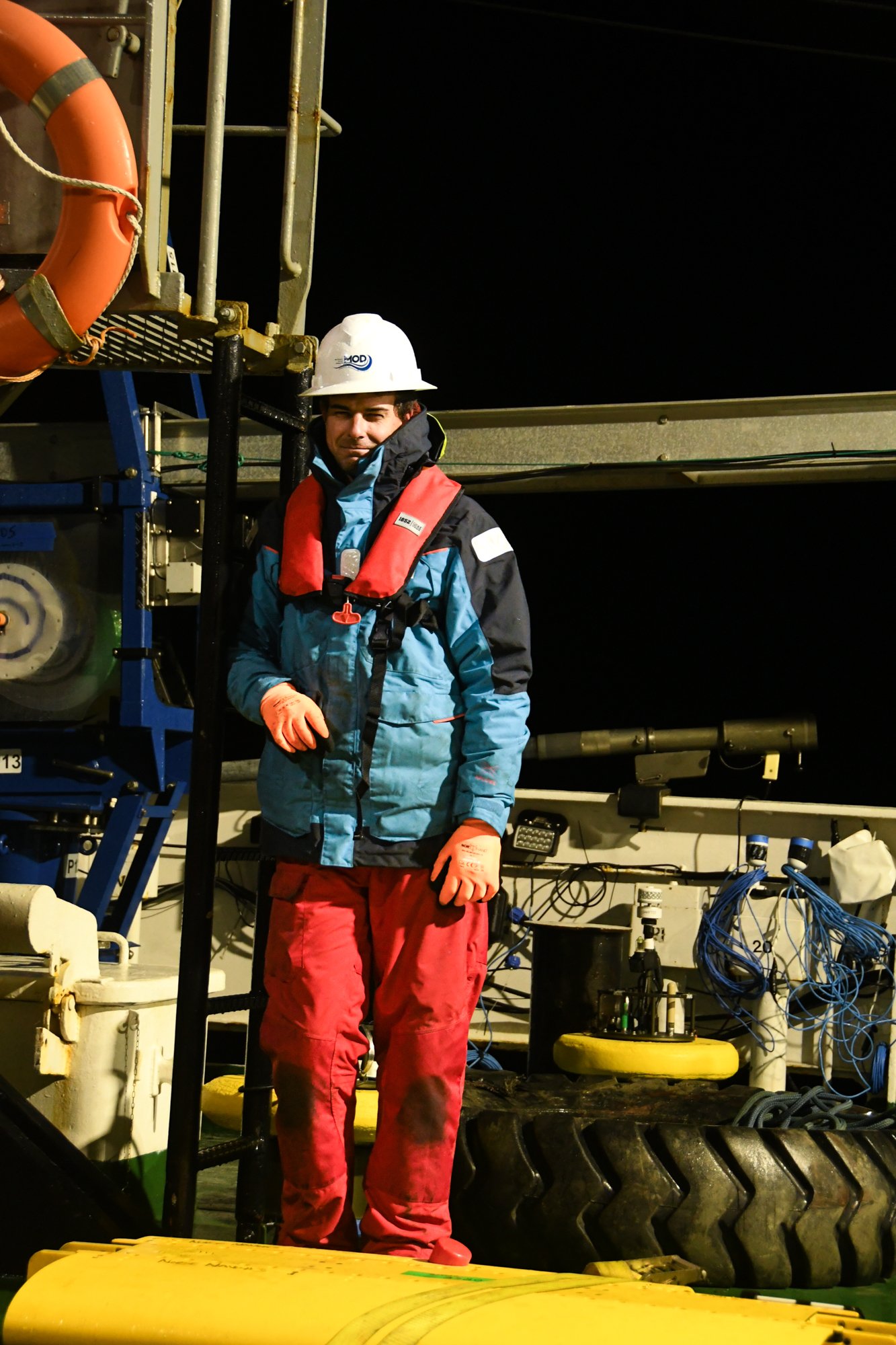What is your background and what are you studying/working on right now?
I grew up in Santa Cruz and got a bachelors degree in physics from UC San Diego. After graduating I moved back home and spent two years doing various kinds of work. I did a winter of life guarding, which is something I’ve done since I was a teenager, and then I spent about a year and a half at MBARI (Monterey Bay Aquarium Research Institute) doing all sorts of research work. I worked on CO2 fluxes, pH in tide pools, modeling of krill dynamics, analysis of environmental DNA and more. There was a fair amount of biology involved, I was part of BOG - the Biological Oceanographic Group. It was a lot of fieldwork and a lot of good times.
I started graduate school at Scripps in the fall of 2019 in the Applied Ocean Sciences program working with Professor Drew Lucas. My work is basically on all sorts of things related to how to measure ocean velocities, primarily using acoustics.
What keeps you excited and interested in working in the field of oceanography?
Going out on boats is a big factor. But I think it’s also the ocean in general, it’s been such a big part of my life. I grew up going to the beach all the time as a kid and my first job was life guarding in Santa Cruz. I’ve literally spent every summer since I was probably 15 staring at the ocean for 8 hours a day. The ocean has always had a feeling of home for me. I just love it.
When you were a kid, did you expect to be a scientist?
Yes, I did. My parents are both scientists, their friends were scientist, I didn’t even know there was a job beyond scientist. I mean, I probably wanted to be a digger driver or airplane pilot at some point in my life, but for most of what I can remember, a “scientist” is what I wanted to be.
Devon waiting to deploy a VMP aboard the Pt Sur in the Gulf of Mexico during fieldwork for SUNRISE.
Wirewalker recovery during SUNRISE 2022.
Were there any particular things from your childhood that drew you to study the ocean?
Just being in, on and around the ocean, looking at it, seeing it change with the seasons and weather. Surfing, life guarding, sailing, all of those things probably contributed too. We lived about 6 miles from the ocean and I spent most of my free time at the beach.
What skills or abilities do you think are useful when thinking about going to graduate school in oceanography?
Honestly, I think anyone can get through graduate school. You rely so much on your peers and other graduate students. Everyone has strengths or weaknesses and you help each other out and fill in for each other. Teamwork is important. You’ll probably make it through on sheer brilliance alone too, but I’m not sure you’ll come out a better scientist in the other end.
What does a typical work-day look like for you?
Oftentimes I just sit in front of a computer for several hours, but I’m also easily distracted in front of a screen, thus I like to get into the lab and see what the engineers are up to and see if I can help them out. I try to go surfing as often as possible and I also meet up with my classmates for lunch every now and again too, human connection is important. Of course I try to get on ships as much as I can, it’s hard work often 12-18h a day seven days a week, but it’s very hands on, which I like.
Devon aboard the Nave Alliance in the North Atlantic during fieldwork for NORSE 2022.
What drew you to Scripps?
It was probably the MOD group which is quite unique in the fact that they build all of their own instrumentation. Most other oceanographers just go buy off the shelf instruments, and if there’s any engineering involved it’s just about integrating that off-the-shelf piece into whatever off-the-shelf platform they’re using. MOD is unique, we’re building our own sonars from the raw parts, wires, crystals and circuits and we make our own software too. That does not happen in many groups around the world as far as I know. I looked at a couple of other graduate schools, but MOD was the only place that had that. It’s cool and exciting. You get to use new instruments and collect unique data that no one else can get.
Is there a particular scientist or person or something that inspires you?
I think it’s mostly the ocean actually. If I wasn’t inspired by, and curious about, the ocean I wouldn’t keep doing what I’m doing.
Do you have a fun fact that you'd like to share that not everyone knows about you?
Well, I used to be a certified jet ski driver, or technically it’s a “rescue water craft driver”, when I was lifeguarding. I even got to teach other people how to drive jet skis, and I’ve spent a lot of time going out helping surfers and swimmers get back to shore. Oh, and during the pandemic I got pretty good at baking sourdough too.
Text and photos by Kerstin Bergentz




